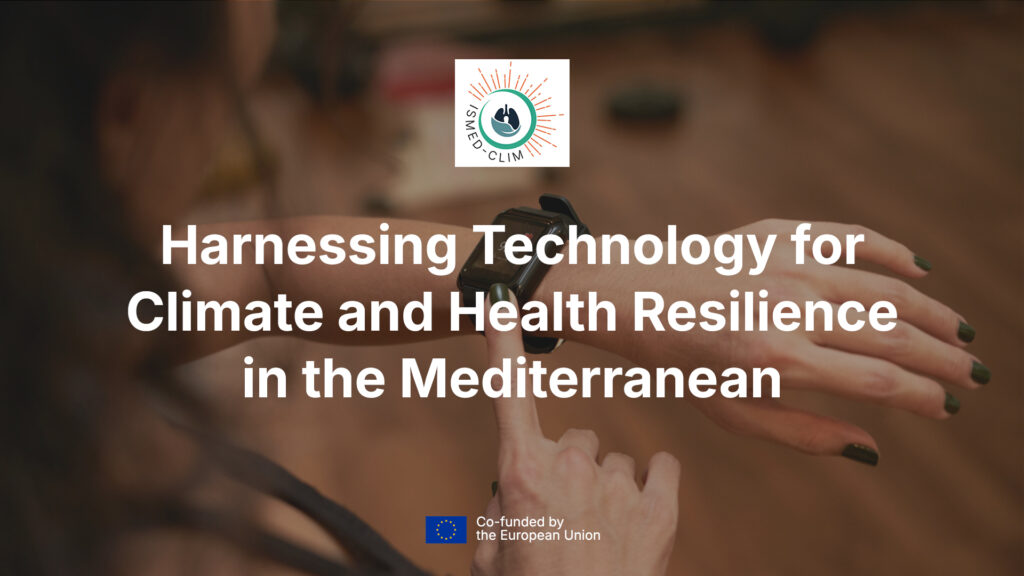Harnessing Technology for Climate and Health Resilience in the Mediterranean
The ISMED-CLIM project is building a technological foundation to help societies and healthcare systems adapt to the health impacts of climate change in the Mediterranean. Across its five Living Labs, the project integrates advanced digital tools with field-based evidence to protect vulnerable groups and strengthen system resilience.

Digital Infrastructure and Early Warning
A central element of ISMED-CLIM is the development of a digital platform that hosts tools for citizens, healthcare professionals, and policymakers. This platform will bring together data from epidemiology, climate modelling, and Living Lab demonstrations. It will include:
- A citizen application delivering personalised alerts and guidance during extreme heat or high air pollution events.
- A policy dashboard with evidence-based recommendations and indicators to support decision making.
- A Living Labs portal to manage and evaluate interventions across sites.
The platform will connect to EU-level resources such as Climate-ADAPT and the upcoming European Health Data Space, ensuring interoperability and long-term accessibility.
AI-Driven Early Warning and Response
ISMED-CLIM is designing an AI-augmented Early Warning and Response System (EWRS). This system combines high-resolution forecasts with personal health and exposure data to:
- Provide real-time risk assessments for vulnerable individuals.
- Tailor advice on reducing exposure during heatwaves and pollution events.
- Support clinical and public health interventions with validated forecasts.
Wearable Sensors and Remote Monitoring
In several Living Labs, participants—including outdoor workers, pregnant women, and older adults with hypertension—will use wearable devices to track exposure and health outcomes. These data streams will feed into the EWRS, helping refine alerts and quantify the benefits of interventions such as hydration strategies, cooling, or activity adjustments.
Modelling of Vector-Borne Diseases
Another focus is the integration of vector disease modelling. Using environmental data and climate projections, ISMED-CLIM will expand surveillance of sand fly populations and associated risks of leishmaniasis. The outputs will be embedded in the EWRS, offering tailored alerts and prevention guidance for professionals such as veterinarians and shelter workers.
Health System Preparedness
Finally, ISMED-CLIM will adapt a Climate Resilience Toolkit for Healthcare Systems, originally developed in the U.S., to the Mediterranean context. Hospitals and clinics will test and refine this toolkit, which includes checklists, case studies, and training materials to strengthen preparedness for climate-related disruptions.
Moving Forward
By combining data platforms, AI tools, wearables, and co-created toolkits, ISMED-CLIM demonstrates how technology can be deployed to address the health impacts of climate change. The project’s innovations will not only serve its Mediterranean Living Labs but also provide scalable solutions for other regions facing similar challenges.
